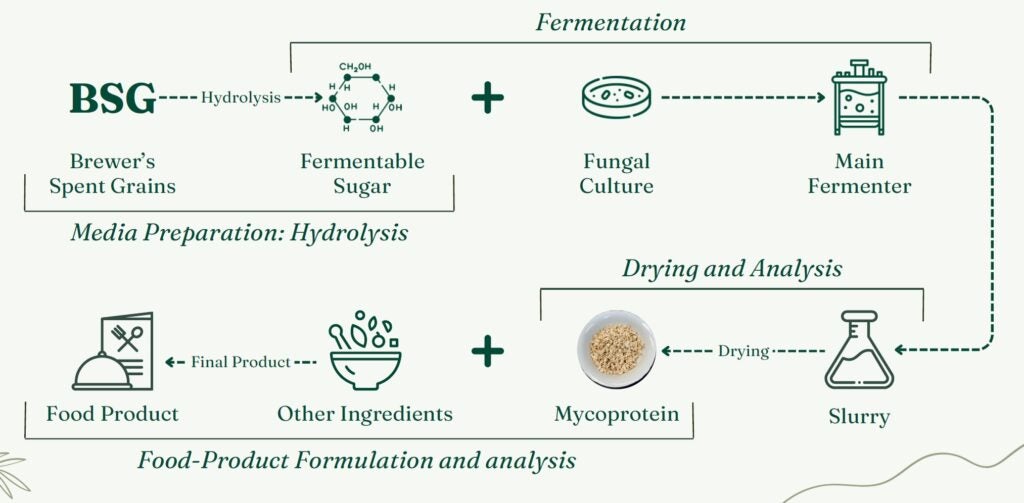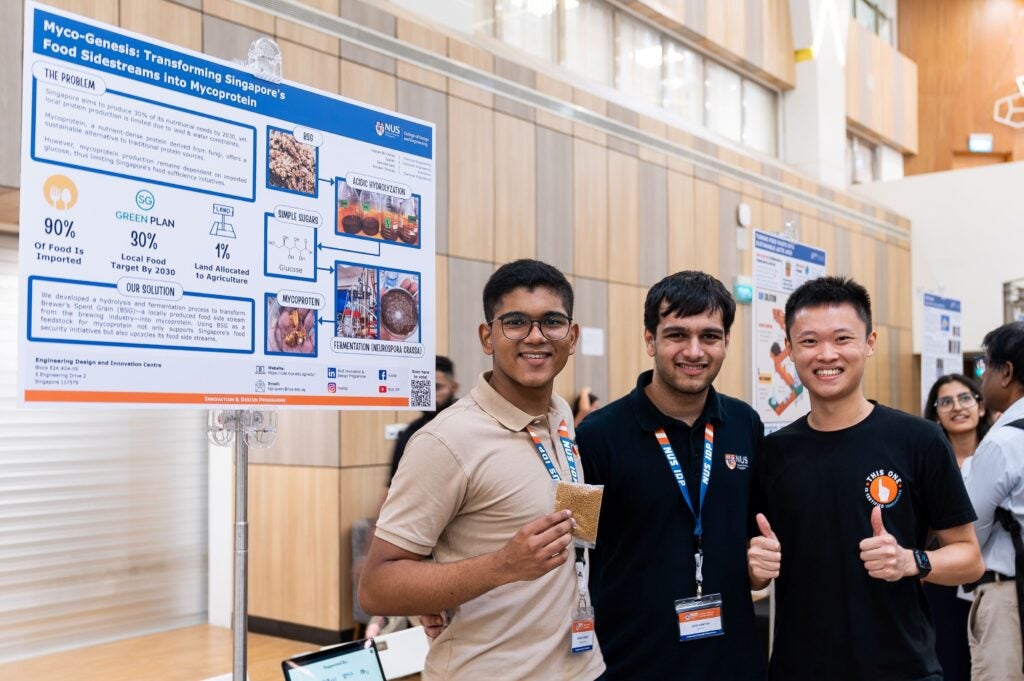Myco-genesis: transforming Singapore's food side streams into mycoprotein
As Singapore aims to meet 30% of its nutritional needs locally by 2030, it faces critical challenges due to its limited land, water, and agricultural resources. As protein forms a substantial part of Singapore’s dietary requirements, identifying sustainable and resource-efficient sources is thus essential to advancing local food security initiatives.
Mycoprotein, a fungi-derived protein, offers a sustainable alternative to animal based protein sources, as it requires minimal land and water to produce, has a low environmental impact, and delivers high nutritional value. However, mycoprotein production currently relies on imported glucose, which undermines Singapore’s efforts toward self-sufficiency and food resilience.
In this project, we successfully demonstrated a viable method to enhance Singapore's protein self-sufficiency by converting brewer's spent grain (BSG), an abundant local food side stream, into high-quality mycoprotein through combined hydrolysis and fermentation using Neurospora crassa. By optimising acid hydrolysis at a dilute acid concentration and determining an optimal fermentation duration, we achieved a mycoprotein yield with higher protein content than that produced using conventional glucose-based media. The absence of detectable mycotoxins and the successful incorporation of the BSG-derived mycoprotein into bread formulations underscore its safety and functional viability as a food ingredient. Given the constraints of traditional agricultural resources and existing mycoprotein production methods, using BSG as an alternative feedstock reduces dependency on food imports and aligns with circular economy principles.



Project Team
Students:
- Baid Samyak (Economics, Class of 2026)
- Dhanda Armaan (Chemical Engineering, Class of 2026)
- Hassan Bin Azhar (Chemical Engineering, Class of 2026)
- Sparsh (Computer Engineering, Class of 2026)
Supervisors:
- Dr Jovan Tan(jovan@nus.edu.sg)
- Dr Elliot Law (elliot.law@nus.edu.sg)


